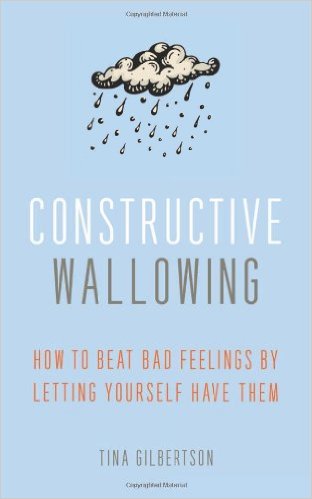by Annabelle Parr
We all struggle at some point in our lives. To hurt is to be human, no matter how much we want to avoid it. For most of us, our natural, reflexive reaction is to try to move away from pain. But avoidance will not serve us; it only brings us more anguish in the long run. The response that will serve us best is to feel. As author John Green (2012) wisely put it, pain demands to be felt.
Instead of viewing emotional pain – grief, loss, sadness, anxiety, stress, fear, or even depression – as a threat or as something inherently bad, we can get curious about these feelings, the wisdom they offer, and the purpose they serve. As Rumi reminds us in the poem The Guest House, every emotion is simply a guest. No emotion is ever permanent, but each one serves a purpose. “Each has been sent as a guide from beyond,” so we should learn to sit with each emotion and ask why it is present.
It can be scary to make contact with the pain that life brings, especially if that is exactly what you have been trying to avoid doing your whole life. It can feel overwhelming and unknown. A therapist can model for you how to approach your pain with mindfulness and compassion, showing you how healing that experience feels, and teaching you to approach yourself and your emotions in the same way. They can help you learn that leaning into the feeling does not mean that the emotion controls you, but rather that you are simply giving it the space it needs to move through you. They can help you to come alongside whatever is causing you pain, and look at it more deeply with you so that you can begin to heal, instead of staying stuck. In fact, the connection that comes from leaning in with someone who profoundly sees and hears you can be incredibly healing.
The more we are able to embrace the pain in our lives, the more deeply we will feel those things that we all desire: love, joy, connection, and peace. Because emotions are not actually opposites, but two sides of the same coin. To know love is to know loss, to know joy is to know sadness, to know connection is to know isolation, and to know peace is to know conflict. And as Brené Brown (2010) reminds us, “you cannot selectively numb emotion. When we numb [hard feelings], we numb joy, we numb gratitude, we numb happiness.”
Here are some tips based on mindfulness and cognitive behavioral therapy for you to begin this process of being with pain, thereby allowing the wisdom inside you to emerge:
- Practice RAIN (Brach, 2013). This mindfulness acronym can help us to connect to the moment and to our feelings in a meaningful way.
- Recognize what is happening. Name your thoughts or emotions, or any feelings or sensations you are experiencing.
- Allow life to be as it is. Do not try to suppress or push away the discomfort that may accompany your thoughts or feelings. Simply allow yourself to be as you are.
- Investigate with kindness. Connect more deeply with what you are experiencing, using a gentle curiosity to delve into your experience. You might think about how you are experiencing your feelings in your body, or perhaps ask what it is your feelings want from you.
- Nonattachment. Rest in the natural awareness that your thoughts and feelings do not define you or your identity.
- Pick up a good book that offers some helpful wisdom regarding being with our emotions. Here are some suggestions: Constructive Wallowing by Tina Gilbertson, Radical Acceptance by Tara Brach, Daring Greatly by Brene Brown.
- Remind yourself that pain is a universal. No person is impervious, although its content varies by person. Therefore, try not to compare your pain to others. "Pain, no matter, how large or small, is still painful," and needs our attention.
- Consider the Acceptance and Commitment Therapy (ACT) concept, "pain can be our ally." When we are hurting, often that pain can remind us of what is most meaningful, and help you to turn your attention to how you can get your values better fulfilled.
- Practice using compassionate self-talk and self-love. For example, say to yourself “no wonder I feel this way.” Put a hand on your heart, cradle your face, or even give yourself a hug. Small gestures and touch have been shown to be very healing. Try this self-compassion exercise from Kristin Neff if you need a little guidance:
http://self-compassion.org/exercise-2-self-compassion-break/
- Reach out to a friend or family member for support.
- Contact a professional if you feel you could benefit from some deeper exploration.
If you or a loved one might be interested in mindfulness, acceptance and commitment therapy (ACT) or cognitive behavioral therapy (CBT) for stress, anxiety, depression, trauma, grief, weight, eating, body image, substance use, or challenges related to relationships, work, or other life transitions, Dr. Shoshana Shea can help. If you would like more information or if you are interested in setting up an appointment, please contact her at 619-269-2377 or shoshanashea@gmail.com.
References:
Brach, T. (2013). Working with difficulties: The blessings of RAIN. Retieved from https://www.tarabrach.com/articles-interviews/rain-workingwithdifficulties/
Brown, B. (2010). Brené Brown: The power of vulnerability. [Video file]. Retrieved from http://www.ted.com/talks/brene_brown_on_vulnerability
Green, J. (2012). The fault in our stars. New York, NY: The Penguin Group.











